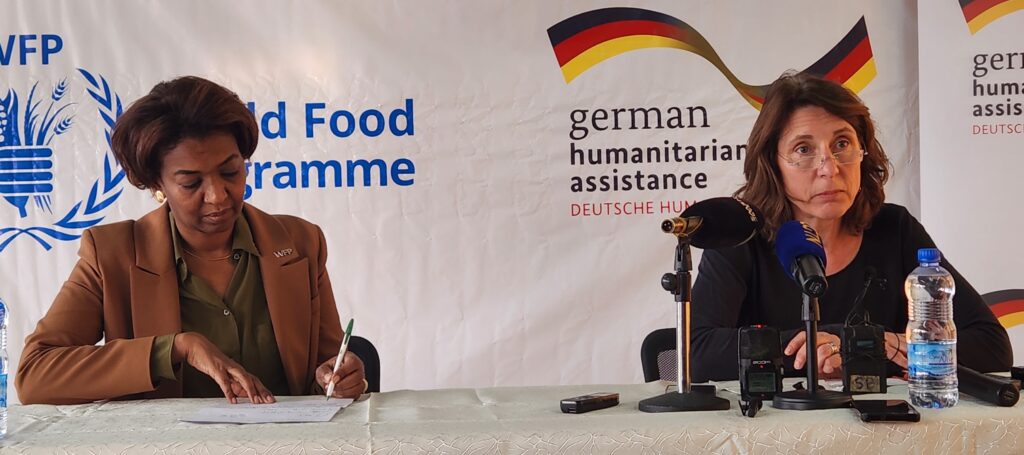Germany has told South Sudan to provide safety and unhindered access to humanitarians as the country battles with the influx of thousands of returnees and refugees from Sudan.
The Director-General for Crisis Prevention, Stabilization, Peacebuilding, and Humanitarian Assistance at the German Federal Foreign Office (GFFO), Deike Potzel, told reporters in Juba on Tuesday that it is of utmost importance that humanitarian assistance is neither politicized nor conditioned, if South Sudan is to overcome challenges in the flooded and conflict-affected regions.
“Safety for humanitarian workers and unimpeded humanitarian access, are essential to us and this applies particularly to the staggering levels of sexual and gender-based violence and sexual exploitation and abuse affecting women and adolescent girls in South Sudan,” she said.
The comments came following the conclusion of a four-day visit to South Sudan by a high-level German delegation to the areas impacted by climate and conflict shocks, where support from the European state is enabling life-saving operations.
Potzel lauded South Sudan’s welcome to refugees and returnees, stressing that she heard disheartening stories from those who just came in from Sudan and called for support to the displaced.
“We really heard some horrific stories when we were up north, but we also saw the courage and the strength of women to overcome these challenges to find new ways for a better future. I am happy to say that Germany is supporting some of these programs. It is wonderful to see how women are striving and how happy they are to have new knowledge in their hands to shape a better future for themselves and for their children,” she said.
Potzel noted that Germany has stood in solidarity with the South Sudanese people and has tried to ease the impact of conflict, climate change, hunger and displacement since independence in 2011.
“For many years, Germany has been the second-largest bilateral donor in South Sudan and has contributed nearly EUR250 million alone to WFP’s life-saving and life-changing work in South Sudan. I look forward to visiting WFP projects in different regions which are possible, thanks to the German support,” she noted.
The WFP Assistant Executive Director for Partnerships and Innovation, Rania Dagash-Kamara, said the delegation visited Bentiu where they saw floods and its impact on the people.
“We saw the floods and the impact of true climatic shocks and how it makes more people vulnerable. We went to Malakal and Renk and saw the returnees and the refugees come in every day from Sudan and I must say we saw a lot of suffering,” she said
“We saw a lot of hope and encouragement and I do want to start by emphasizing something already said: the generosity of the South Sudanese people has been incredible in Malakal and Renk accommodating over 1 million people who have crossed the border either as returnees or as refugees. It truly signals the humanity and the links between the communities so a great appreciation from us in the World Food Program to the people of South Sudan.”




